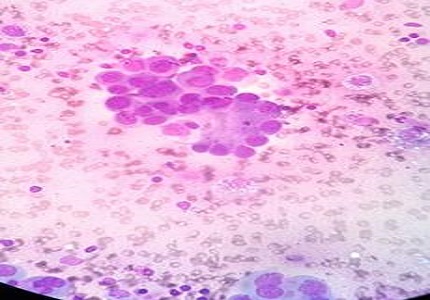Diagnostic accuracy of Bronchoalveolar lavage fluid in diagnosis of lung cancers in a tertiary care hospital in coastal region of Karnataka
Abstract
Introduction: Bronchoalveolar lavage (BAL) fluid analysis helps in early detection, rapid diagnosis and treatment of lung cancer as the therapy is based on subtyping. BAL has an important role in diagnosis of peripherally situated bronchoscopically invisible primary lung cancers, most of which are adenocarcinomas.
Purpose: This study aims to detect diagnostic accuracy of BAL fluid analysis in detection of lung cancers.
Materials and Methods: This retrospective cum prospective study in a tertiary care hospital involved analysis of BAL fluid obtained by lavage of respiratory tract in clinically and radiologically suspected lung lesions for 4 years from January 2012 to December 2016.
Results: Out of 169 BAL fluids received, 38(22.4%) were positive for malignancy. Squamous cell carcinoma is the most common cancer noted in our study. BAL was reported falsely negative for malignancy in 49 cases (56.7%) proved by lung biopsy. BAL was reported falsely negative for malignancy in 49 cases (56.7%) proved by lung biopsy. One false positive case was noted in our study. The sensitivity of BAL was 43% and specificity of BAL was 98.8% in our study. The positive predictive value of BAL in the diagnosis of lung cancers is 97.36%. The negative predictive value of BAL in the diagnosis of lung cancers is 62.59%.The diagnostic accuracy of BAL is 70.4%.
Conclusion: BAL fluid analysis provides a rapid, reliable process to detect, subtype malignancies of the lower respiratory tract both in bronchoscopically visible and invisible tumours.
Downloads
References
2. Behera D, Balamugesh T. Lung cancer in India. Indian J Chest Dis Allied Sci. 2004 Oct-Dec; 46(4):269-81. [PubMed]
3. Murray N, Coy P, Pater JL, Hodson I, Arnold A, Zee BC, Payne D, Kostashuk EC, Evans WK, Dixon P, et al. Importance of timing for thoracic irradiation in the combined modality treatment of limited-stage small-cell lung cancer. The National Cancer Institute of Canada Clinical Trials Group. J Clin Oncol. 1993 Feb;11(2):336-44. [PubMed]
4. Molina JR, Yang P, Cassivi SD, Schild SE, Adjei AA. Non-small cell lung cancer: epidemiology, risk factors, treatment, and survivorship. InMayo Clinic Proceedings 2008. Elsevier. May 3; 83 (5): 584-94. [PubMed]
5. Wongsurakiat P, Wongbunnate S, Dejsomritrutai W, Charoenratanakul S, Tscheikuna J, Youngchaiyud P, Pushpakom R, Maranetra N, Nana A, Chierakul N, Sakiyalak U, Ruengjam C. Diagnostic value of bronchoalveolar lavage and postbronchoscopic sputum cytology in peripheral lung cancer. Respirology. 1998 Jun;3(2):131-7.
6. Koss, Leopold G, Melamed, Myron R. Koss' Diagnostic Cytology and Its Histopathologic Bases, 5th ed. Lippincott, Williams and Wilkins, 2006: 646.
7. Tockman MS, Mulshine JL, Piantadosi S, et al. Prospective detection of preclinical lung cancer: Results from two studies of heterogeneous nuclear ribonucleoprotein A2/B1 overexpression. Clin Cancer Res 1997; 3:2237-46.
8. Linder J, Radio SJ, Robbins RA, Ghafouri M, Rennard SI. Bronchoalveolar lavage in the cytologic diagnosis of carcinoma of the lung. Acta Cytol. 1987 Nov-Dec;31(6):796-801. [PubMed]
9. Pirozynski M. Bronchoalveolar lavage in the diagnosis of peripheral, primary lung cancer. Chest. 1992 Aug;102(2):372-4. [PubMed]
10. De Gracia J, Bravo C, Miravitlles M, Tallada N, Orriols R, Bellmunt J, Vendrell M, Morell F. Diagnostic value of bronchoalveolar lavage in peripheral lung cancer. American Review of Respiratory Disease. 1993 Mar 1; 147(3):649.



 OAI - Open Archives Initiative
OAI - Open Archives Initiative


